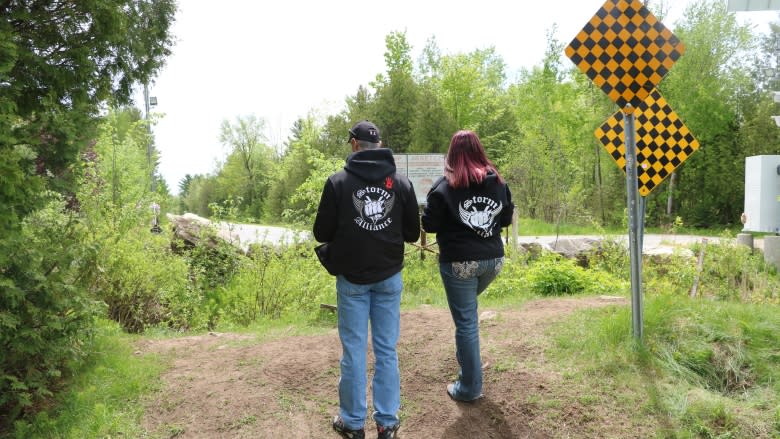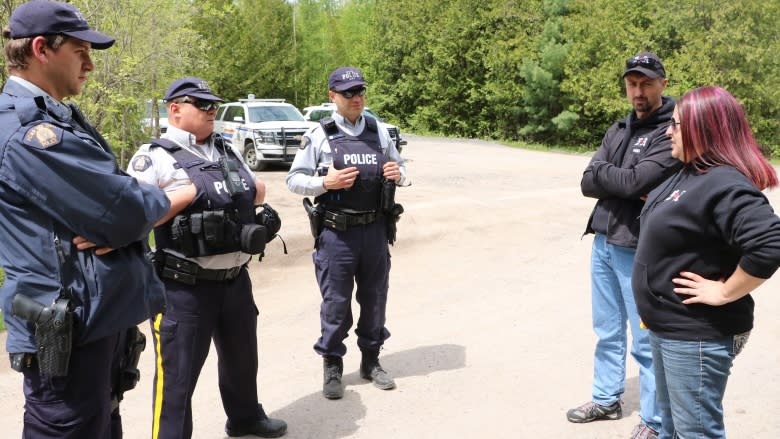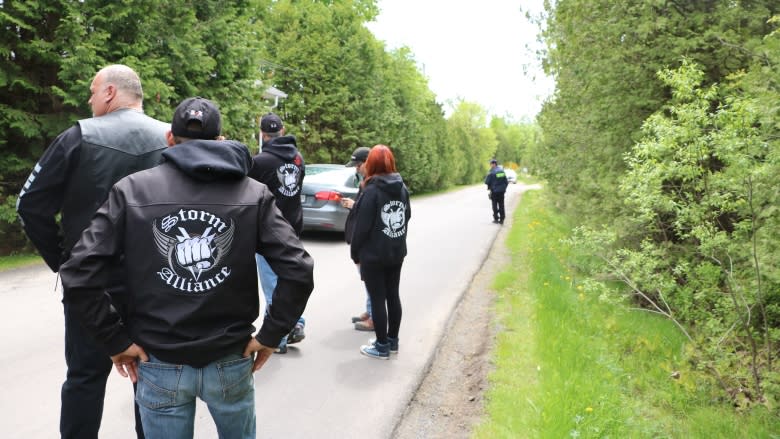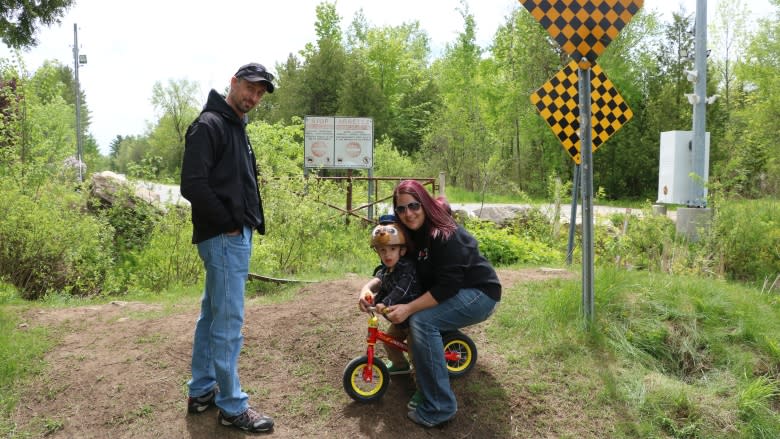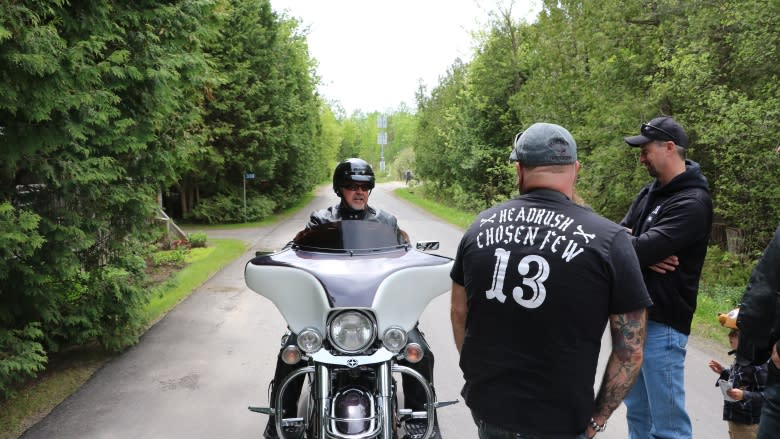'Ultranationalists' monitor Roxham Road, where asylum seekers cross into Canada
Over the holiday weekend, while many Quebecers were enjoying some overdue sunshine, a dozen people worried about lax border controls gathered in the woods near Hemmingford, Que., in the hopes of staring down asylum seekers.
Unlike the militias that have formed along the southern U.S border, this group — made up of men, women, three small children and a bichon maltese-shih tzu mix — carried no weapons and had no plans to patrol.
But like those militias, the group that gathered Sunday at Roxham Road is also concerned authorities aren't doing enough to stop migrants from crossing into Canada illegally.
Dave Tregget, who organized the meeting, explained their intention is simply to observe border crossings. He's concerned the mainstream media isn't telling the whole story.
"We just want to see for our own eyes what's going on," said Tregget while waving away a cloud of blackflies.
"Migrants should go through the border legally. Some people are waiting to become Canadian citizens legally. We want everybody to go through the same process."
Roxham Road is a popular destination for would-be refugee claimants, who travel from across the U.S. to Plattsburgh, N.Y. From there they take a taxi to Roxham Road, where they can cross the border easily on foot.
No asylum seekers crossed while Tregget's group was there on Sunday. But ever since Donald Trump's election in the U.S. the number of illegal crossings into Quebec has continued to rise — up to 672 in April from 644 a month earlier, according to the latest government figures.
'Ultranationalist' not 'far right'
Tregget is the leader and founder of Storm Alliance. He had been president of the Quebec chapter of Soldiers of Odin, a far-right organization based in Finland, but left last year after accusing the leadership of racism.
He describes his new group, which is composed of several disaffected Soldiers of Odin members, as "ultranationalist" rather than "far right."
As the members of Storm Alliance monitored the border line, three Mounties stood guard nearby, prepared to arrest anyone who crossed into Canada.
A lone Sûreté du Québec officer was dispatched to ensure the group did not interfere with the RCMP's work. They were asked to keep their distance, but allowed to walk to the border line in groups of two or three.
The RCMP did not return a request for comment Monday about the group's presence at the border.
Several of the people joining Tregget on Roxham Road made the three-hour trip from the Quebec City area; many wore black hoodies with the Storm Alliance logo.
None were from Montreal, and one woman noted she tries to avoid the city, pointing out that it had officially become a "sanctuary city" — a designation allowing for the protection of undocumented immigrants.
Many of them met through Facebook and share an underlying concern about how new arrivals could change the country.
"We want to see for ourselves, how many are crossing over, and what's the end game," said Isabelle Fournier, whose two-year-old son Hunter raced back and forth on a push bike along the dirt road.
'We want them to respect our culture'
Fournier isn't convinced the RCMP adequately monitors the border, and worries about people walking into the country unchecked.
Asylum seekers, however, need to be arrested in order to start the process of making a refugee claim. If they cross legally at a border station, those claims have little chance of success.
Marc Bédard, a truck driver from Vaudreuil, west of Montreal, said he's not against immigration, but wants to ensure people who come here follow the rules.
"I've never been scared of living here because we live with other people who share our values. Now I'm not so sure," he said.
Tregget and others interviewed by CBC News insisted they weren't there to cause problems, or to intimidate would-be refugees hoping to make a life in Canada.
Like others who were there Sunday, he has visited Roxham Road before, and plans to visit again.
"People come over here. We want them to respect our culture, abide to it, live by it, and some people see that as racism, which it's not," he said.

